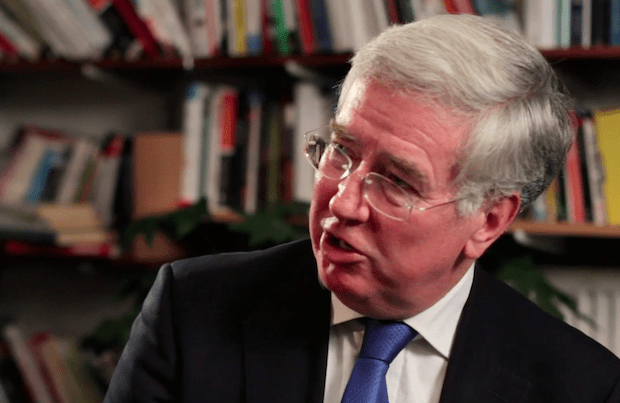Michael Fallon was very careful indeed to push the issue of military action against Isis in Syria in as gentle a fashion as possible when he came to the Chamber this afternoon. The Defence Secretary told MPs the government knew that Isis is running its operations from North Syria, and he again made the argument about the illogicality of sticking to borders that the terror group doesn’t recognise.
His attempts not to further agitate those Tory MPs sitting behind him were interesting, but what was more interesting was the Labour response to the statement, in which Vernon Coaker made it clear that his party would be regarding potential action in Syria with a great degree more sympathy than it did for the previous proposal of potential action in Syria.
The Shadow Defence Secretary told the House of Commons that ‘we stand ready to work with the government to defeat Isil, and will carefully consider any proposals that the Government decide to bring forward’. He set out conditions for support, which are as follows:
1. The government must be clear about the difference the action will make to the objective of defeating Isis.
2. There must be clarity about the nature of the action.
3. We need to know the legal basis for this action.
4. The action must command the support of other nations in the region, including Iraq and the coalition already taking action in Syria.
He was later given an opportunity to elaborate further on how sympathetic he was to military intervention when Alex Salmond suggested that Labour was abandoning its opposition to intervention in Syria. Coaker pointed out that this was a different question involving action against different people (indeed, this point was made by a number of MPs who are considerably less sympathetic to military action), and said that Labour would only give its support on the basis of those conditions.
Those conditions are helpful from Labour, as they do mean that should the government satisfy them, it can reasonably expect the Opposition’s support in the lobbies, rather than a last-minute change of heart. But satisfying them is challenging, as the debate on the issue showed. MPs seemed rather less keen generally to discuss the points made by Coaker about the difference action could make to defeating Isis, and more keen to talk about the importance of rebranding the terror group Daesh. Language is indeed a powerful thing, but perhaps the reason MP after MP stood up to talk about this rather than the complexities of any military intervention is more that renaming the group helps parliamentarians here feel a little more powerful than they are.







Comments